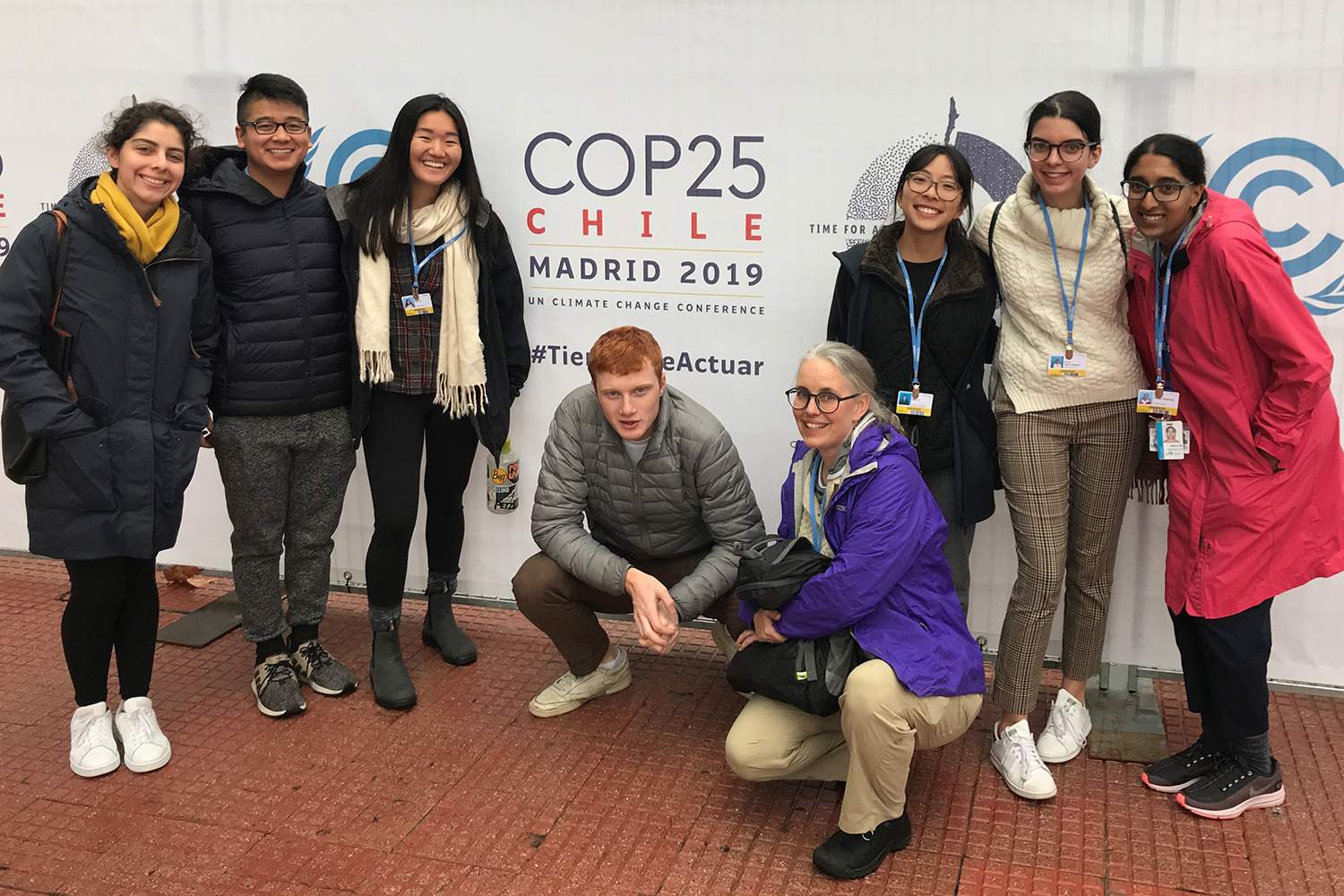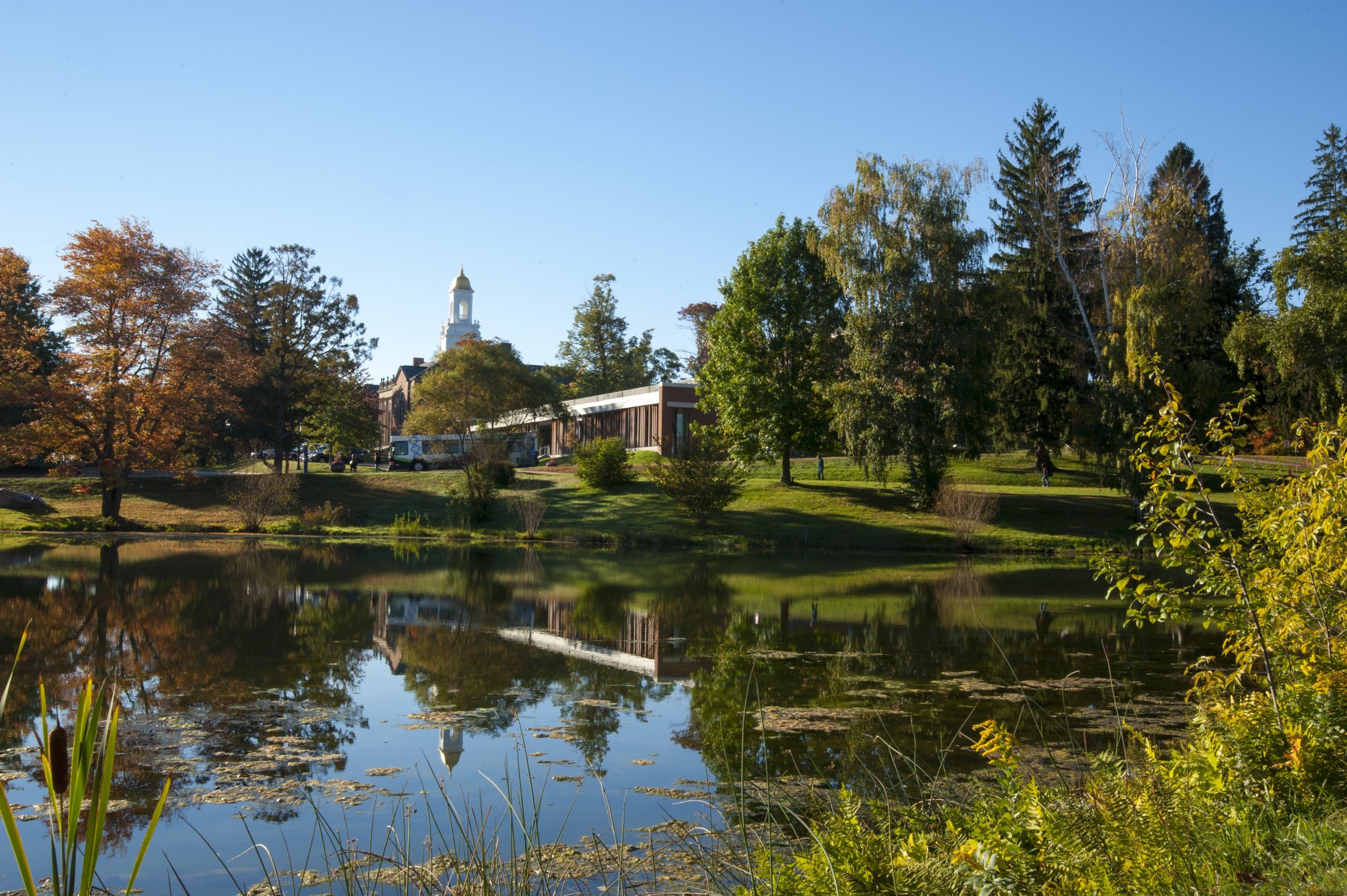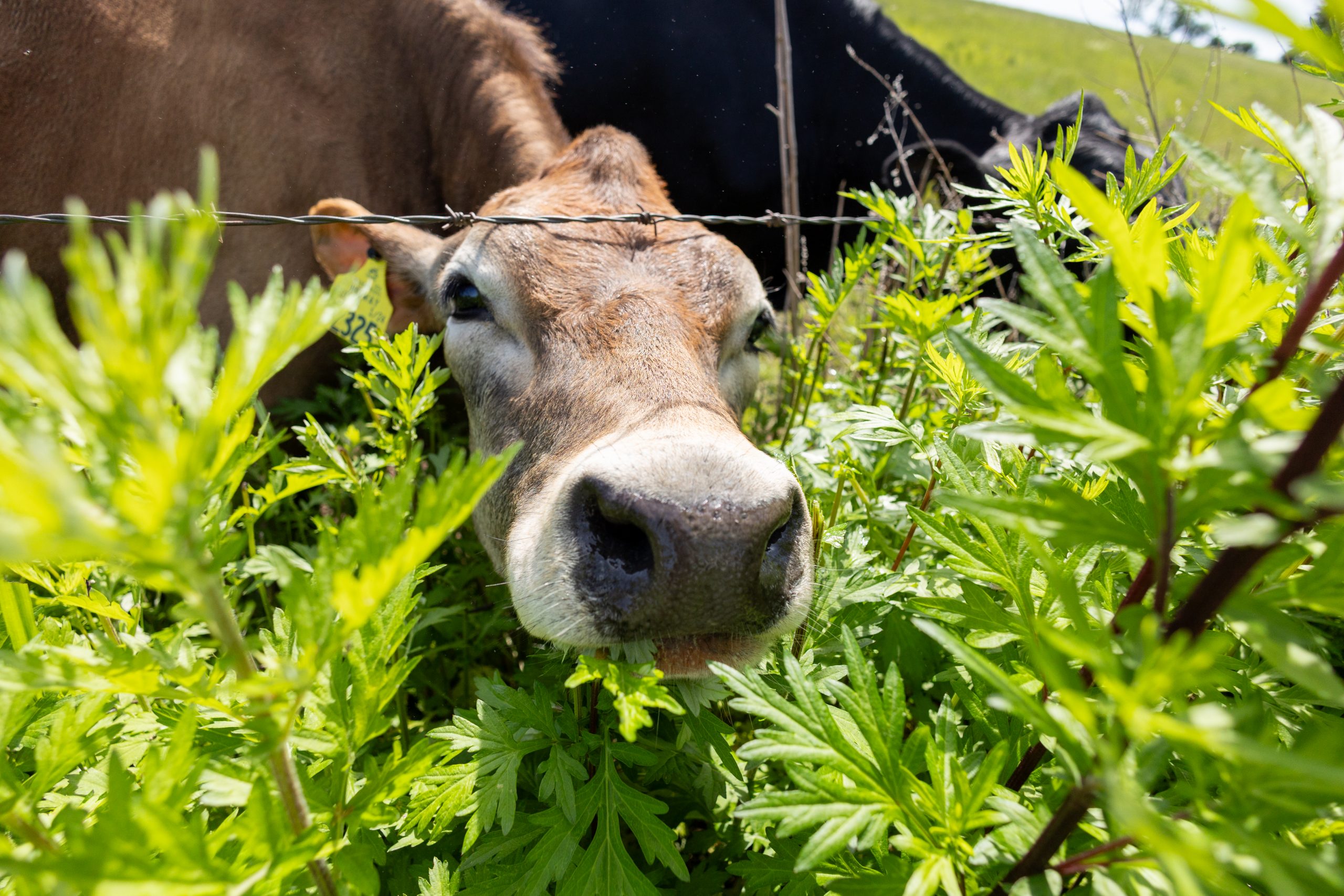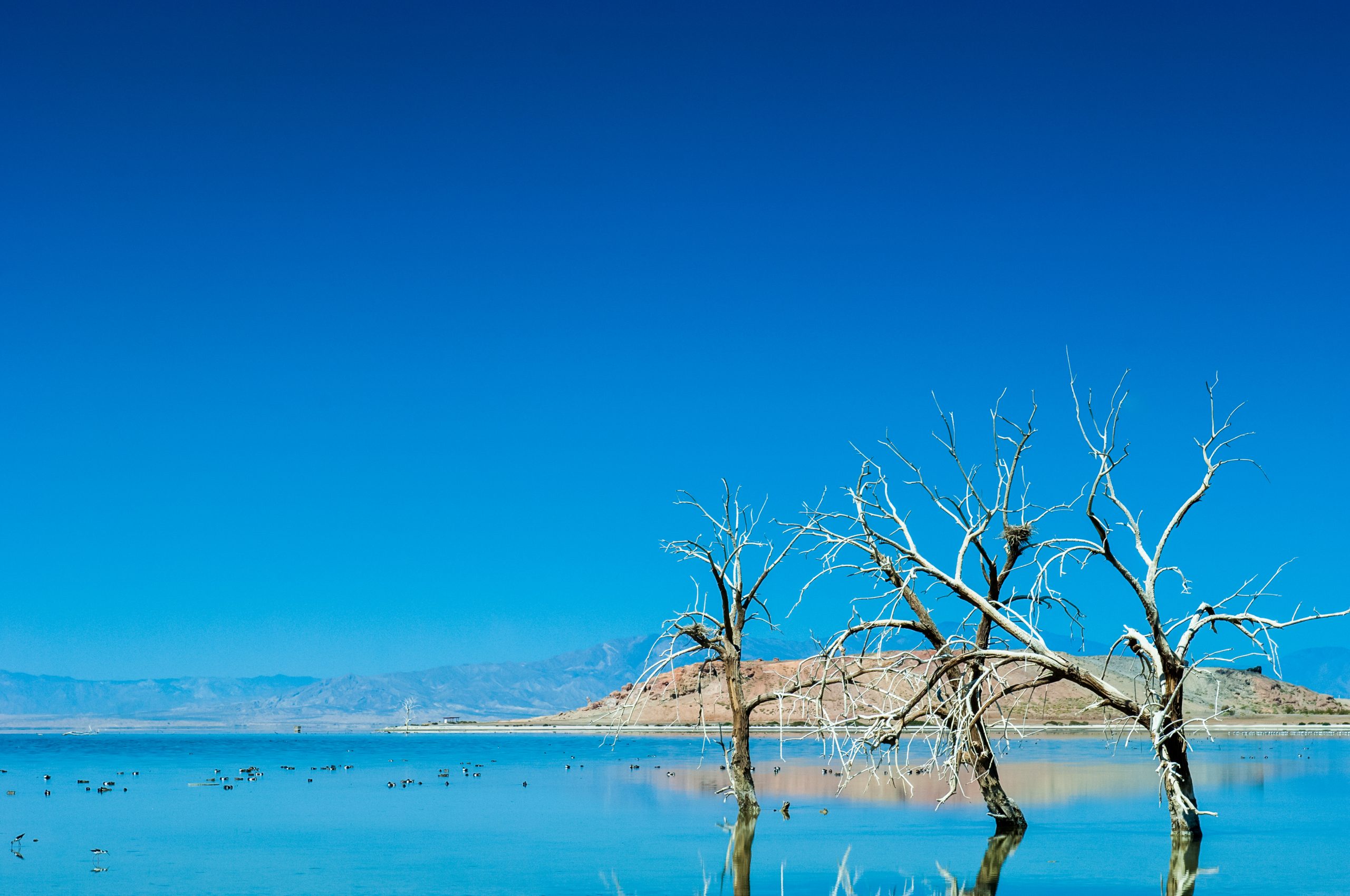At COP25, the United Nations’ annual conference on climate change, participants looked at the problem from many angles. For UConn Law student Louanne Cooley LAW ’20, the most promising ideas came from discussions around climate law and policy.
Nearly 200 countries sent delegates to Madrid for the conference, and thousands of scholars, activists and scientists also attended. Cooley agreed with a broad consensus that the conference did not accomplish enough, but said she was encouraged by what she describes as a strengthening of the call for action from civil society.
“So much more needs to be done, but for me, learning what others are doing is invigorating and helped me see how my own efforts and future work can be part of the solution,” she said.
UConn has been sending students to COP – named for the “Conference of the Parties”—since 2015. This year the university sent 17 “COP Fellows” to Madrid. Cooley was the first law student ever to join the UConn contingent.
The 2019 conference nearly didn’t happen. After a far-right populist government swept into power in Brazil, the country pulled out of hosting duties. Chile offered to take over but civil unrest related to austerity measures there made the country less than ideal for an international gathering. Spain stepped in, and together with the government of Chile pulled the conference together in less than four weeks.
COP25 gave Cooley an opportunity to attend sessions on such topics as “Fighting Climate Change: The Legislative Response.” She also talked with people from around the world, gaining a broader perspective on how climate change looks to people in Fiji, Zambia, Malawi, Uganda, New Zealand and many other nations.
Before the Madrid trip, Cooley was already active on the issue of climate change. She is involved in the student-run Energy and Environmental Law Society at UConn Law and works at the law school’s Center for Energy & Environmental Law as a research assistant.
She is also involved with the global Tempestry project, a form of “craftivism” that encourages activists to represent climate data visually in fiber art. Her own knitting project incorporates changing temperatures since the 1880s, depicted as colors.
“Watching the years progress as I knit, the darker blues dropping out to be replaced by lighter colors, then darker and darker reds, it is impossible to ignore how our planet has changed,” she wrote in a blog entry from the conference.
The Center for Energy & Environmental Law intends to help start a Hartford branch of Tempestry early next year. In April 2020, the center’s annual Earth Day symposium will examine
the many challenges of climate change and strategies to address them.
Cooley said that attending the conference was worth it, even though she came down with a bad cold in Madrid and returned to face final exams.
“This week has been both devastating and hopeful,” Cooley said. “Devastating to hear the voices of those most vulnerable and affected, and hopeful that civil action, led by youth and supported by decades of dedicated work, can lead to real change.”



